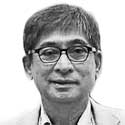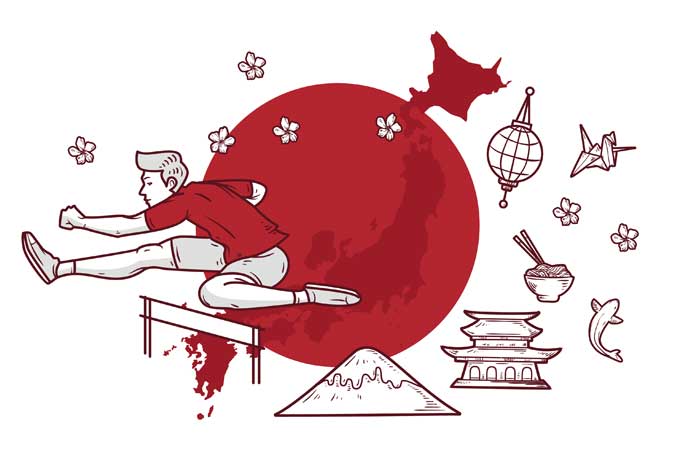
Earning Our Tomorrow
By Philip Ella Juico

The countdown to the 2021 Tokyo Olympics ends tomorrow, Friday, July 23, the day of the opening ceremonies and parade of athletes.
The 2021 Tokyo Olympics is going to be the most restrictive ever simply because it is being staged in the middle of a global health emergency. The fact that it will start tomorrow is in itself an achievement, added testimony to man’s resiliency. The fact that most of the 10,000 athletes competing have completed their long journeys is also a victory over adversity. It underscores the tremendous influence the Olympics have on governments and populations, despite the widespread and vocal objections to it in Japan itself.
Athletes and officials speak of the remarkable absence of demonstrations or public outcries or graffiti protesting the staging of the Earth’s biggest event. Obviously, restraint is a Japanese trait.
Edward Kho, communications and marketing director of the Philippine Athletics Track and Field Association (Patafa) is in Isahaya City, Nagasaki prefecture as the one-person advance party of the Patafa. The 55-year-old or so organization is a private, non-profit corporation that is the sole governing body of the sport of athletics in the country. Athletics covers the following events: track and field, race walking (walkathon), road running (marathon), and cross country. The sport, which is the foundation and centerpiece of any multi-sport Olympic-type festival, aptly breathes life into the Latin slogan, citius (faster), altius, (higher), fortius (stronger). The events in the sport include, running, jumping and throwing.
Edward was with me at Ishihaya in 2017 to lay the ground work for the pre-games, acclimatization, and athletics training camp. He noted the sparse crowd in the streets of Isahaya with a population of about 145,000. Edward said, “there are not too many people out walking in the streets, although quite a number of vehicles are running around. Our gracious hosts have politely informed us that, per National Government policy, our movements are limited to the hotel, to the track and back. No side trips anywhere.”
Isahaya is in the prefecture of Nagasaki, whose capital city of Nagasaki was one of two cities on which the United States dropped atomic bombs to speed up the cessation of World War II hostilities in the Pacific. Evidence of the devastation created by these two monstrous attacks are still very clear and memories are still fresh of Aug. 6 and 9, 1945 when Hiroshima and Nagasaki took those massive blows. Coincidentally, the Olympics end on Aug. 8, 2021 or 76 years later.
Aside from the atomic bomb attack, Nagasaki is known as being where Filipino missionaries like San Lorenzo Ruiz were executed. A marker has been erected in his memory with the help of Filipino clergy and laymen. There are about 50 Filipinos working and residing in Isahaya, and the commemoration of the martyrdom of Lorenzo Ruiz was milestone in the predominantly non-Christian area. Nagasaki was the only territory that the Japanese rulers back then opened up to the outside world during a period of isolation.
Typically, the Japanese were preparing early for the 2020 Olympics and had gotten the local governments like those in Nagasaki and Isahaya involved. The prefecture agreed to host the five-day pre-games training of foreign delegations and the Philippine athletics team was chosen by the officials of the two local governments. Hosting overseas athletes was simply a matter of getting the local officials and their constituents behind the games.
From our point of view, the matter was a no-brainer: Nagasaki and Isahaya offered the free use of the Transcosmos, an ultra-modern, 20,000-seat track stadium that compares very favorably with the larger New Clark City track oval built by the BCDA (Bases Conversion and Development Authority) for the 2019 SEA Games. It took Edward and I just one trip to Isahaya in August in the middle of the 2017 SEA Games at Kuala Lumpur to seal the deal. We could not help but wonder how a small city is able to own and maintain a multi-million-dollar modern track stadium. This scenario gives one an idea of the affluence of Japanese society and its economic dynamism.
The entire Philippine contingent to the 2021 Tokyo Olympics is comprised of 19 athletes – nine men and 10 women competing in athletics, aquatics, boxing, golf, gymnastics, weightlifting, and skateboarding. It’s the first time in the history of Philippine participation in the Olympics that women outnumber the men.
Ernest John (EJ) Obiena of athletics (listed by the Philippine Olympics Committee in its official publication as taking part in “pole vaulting,” which is an event in the athletics sport), will start competing in pole vault’s qualifying/preliminary round on July 31. He will be facing 31 vaulters, mostly from Europe, Scandinavia, and the Americas. The cast includes defending Olympic champion Thiago Braz of Brazil and world record holder Armand Duplantis. The American-born Duplantis opted to play for his mother’s homeland, Sweden. With a record of 6.17 meters, Duplantis is favored to win gold. EJ, however, is hardly daunted by this since he cleared 5.87 in early July to establish a new Philippine outdoor record. EJ was the first Filipino to qualify for the Tokyo Olympics. EJ needs to clear the height set by organizers to move into the final round on Aug. 3. According to Emerson Obiena, EJ’s father, based on the 2016 Rio Olympics, only the top 12 players may compete in the finals.
The Philippine entry in the 200 meter race, Kristina Knott, will run in a field of 40. That group is divided into to eight entries per heat. To advance to the semis, Kristina needs to finish in the top four of her heat or register among the fastest four losers from the remaining 20 other runners. After the semis, Kristina of course hopes to make it to the finals on Aug. 3.
Both EJ and Kristina have prepared long, hard, and smart. Physically, they’re in tip-top shape. At this point, with a few days to go, the mind and heart take over.
Philip Ella Juico’s areas of interest include the protection and promotion of democracy, free markets, sustainable development, social responsibility and sports as a tool for social development. He obtained his doctorate in business at De La Salle University. Dr. Juico served as Secretary of Agrarian Reform during the Corazon C. Aquino administration.